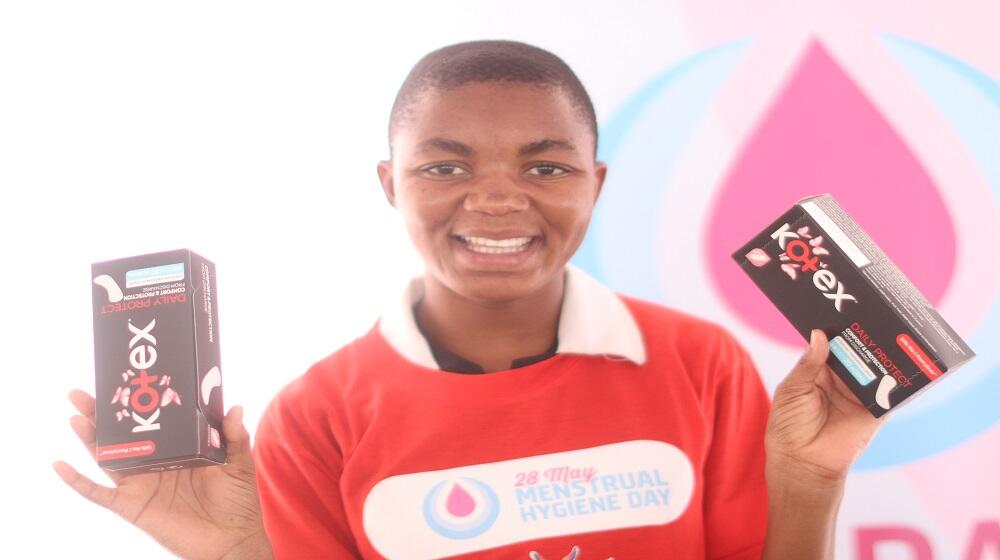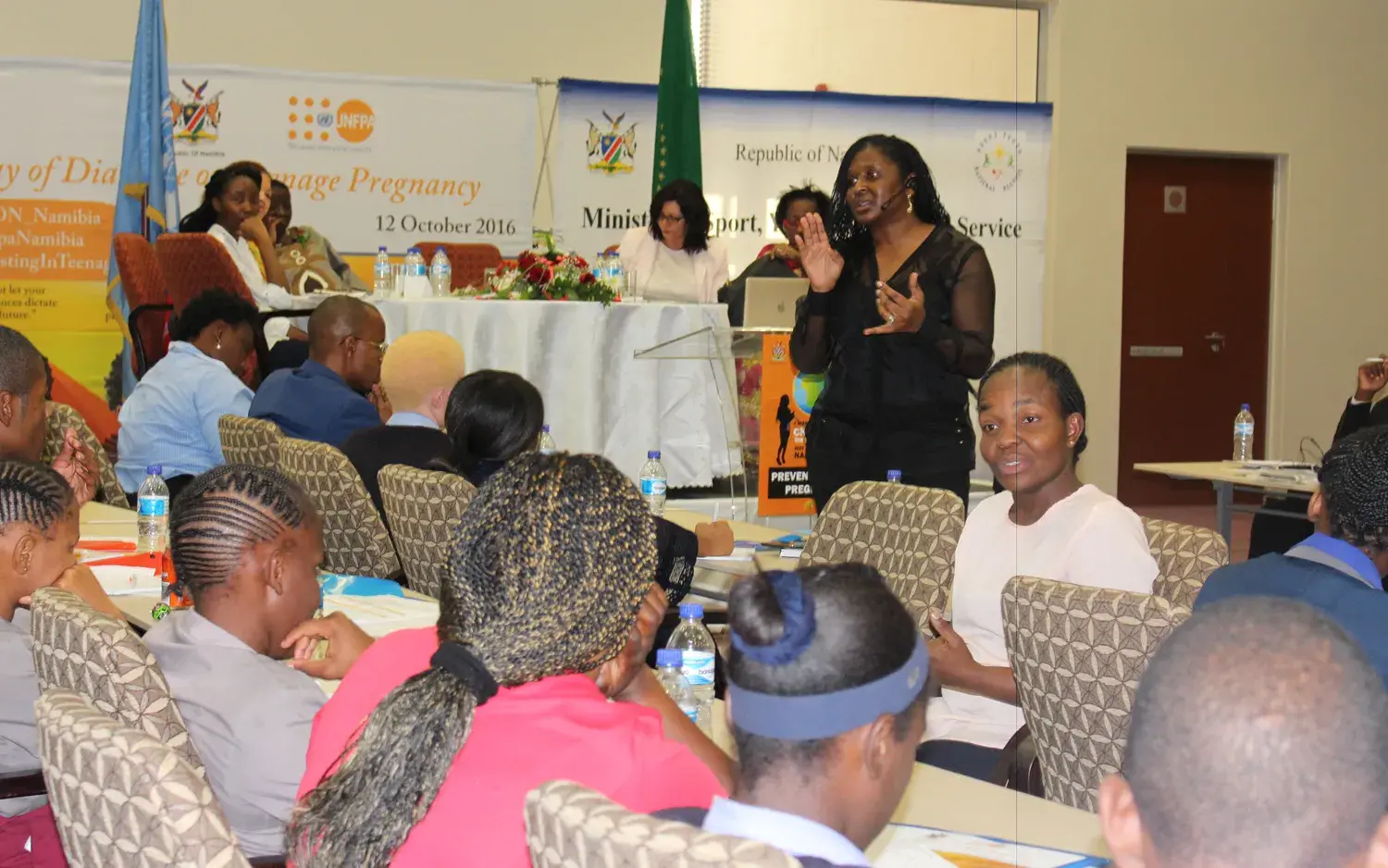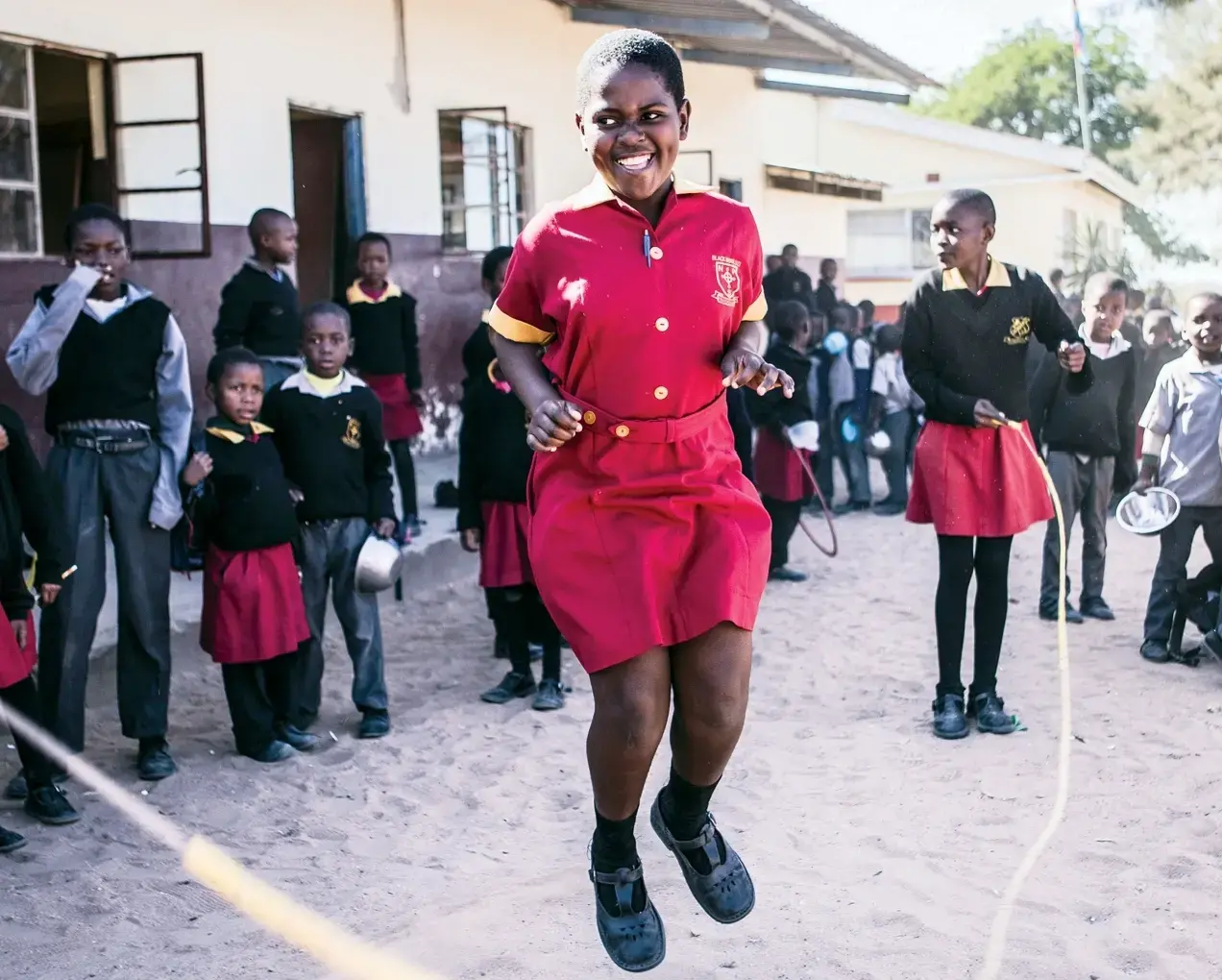OPUWO, Namibia − The impact of COVID-19 on families, women and girls cannot be underestimated.
During the pandemic, Namibian families had to prioritise basic needs and this meant cutting important things such as personal hygienic products.
For many girls in rural areas this has meant that they had to go without sanitary pads and therefore had to find alternatives.
The Leaving No One Behind Project funded by the Government of Japan handed over dignity kits to young girls from schools in Opuwo on 26 May 2022.
It was a holiday but the staff from the Opuwo Hospital Clinic came in to help distribute the dignity kits to pregnant women, lactating mothers, and school girls.
“Hygienic supplies have a direct impact on the dignity, health, and education of women and adolescent girls,” said Ms. Sheila Roseau, United Nations Population Fund (UNFPA) Namibia Representative.
For vulnerable women and girls preserving dignity is critical to protection, including GBV response, self-confidence and self-esteem
“For vulnerable women and girls preserving dignity is critical to protection, including GBV response, self-confidence and self-esteem,” she said.
She further emphasised that it is not acceptable that particularly girls continue to be prevented from getting an education, earning an income, and fully and equally participating in everyday life.
The Leaving No One Behind Project is implemented in 8 regions, including Kunene Region, and contributes to the combating of gender-based violence and as a response intervention in the context of COVID-19.
This handover was part of the support to adolescent girls and women affected by worsening existing inequalities due to COVID-19.
The event coincided with Menstrual Hygiene Day 2022 which was to be celebrated around the world on 28 May 2022.
Namibia joined the world to break the taboos and end the stigma surrounding menstruation.
The handover of dignity kits contributed towards a better understanding of menstruation by raising awareness about the challenges regarding access to menstrual products.





